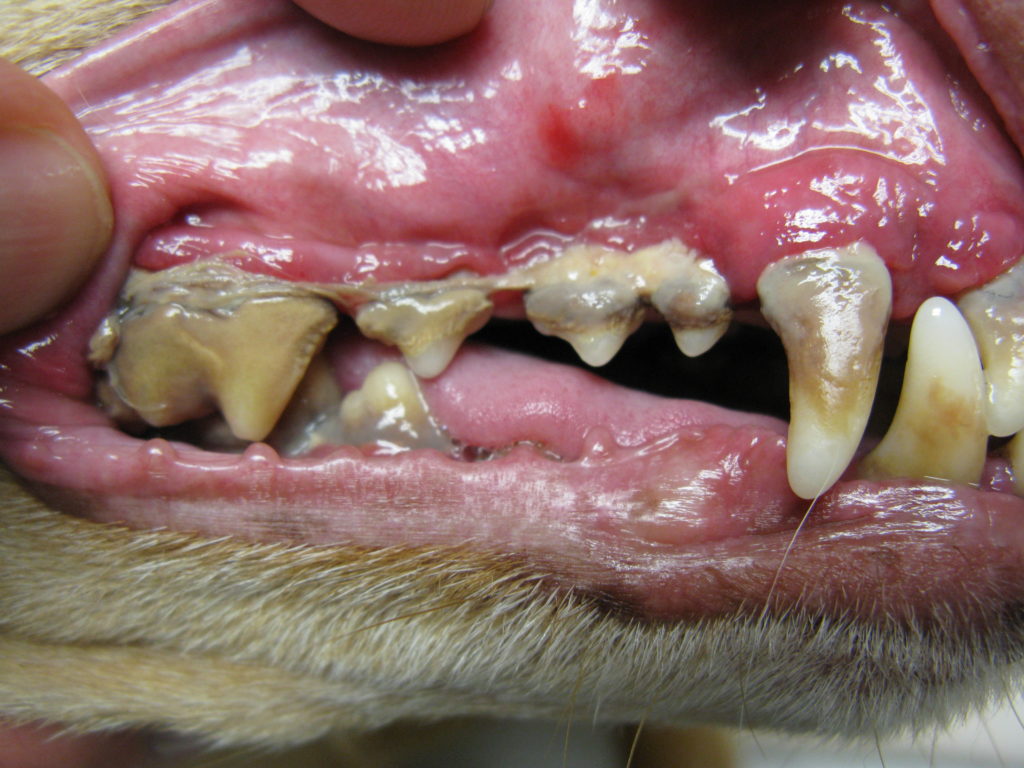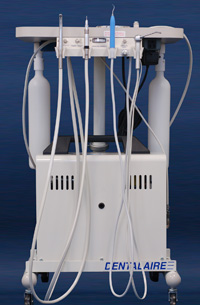Dental Disease – It’s more than just Bad Breath
Healthy teeth equal healthy pets. Just as proper dental hygiene is important for us, it is vitally important for our animals as well. Over 80% of dogs and 70% of cats have dental or gum disease by the age of three. By making proper dental care a must for your pet’s preventative health plan, you can increase your pet’s life expectancy by 2-4 years. Yes, YEARS.
Because dental problems are usually thought of as just bad breath, they are sometimes overlooked. However, when dental disease is left untreated it can often lead to more serious systemic problems. The bacteria from the teeth and gums often get into the blood stream which can lead to kidney, heart, or liver disease.

Some signs of oral and dental disease in dogs and cats:
- Bad breath
- Loose teeth or teeth that are discolored or covered in tartar
- Your pet resents touching near the mouth
- Drooling or dropping food from the mouth
- Bleeding from the mouth
- Loss of appetite or loss of weight (this combination can result from diseases of many organs, and early veterinary examination is important)
At Advanced Veterinary Care we offer a full range of dental services with our deluxe dental unit. Our routine dental cleanings include:

- Some of the safest, individual-based anesthesia protocols available **
- Sub-gingival cleaning and ultrasonic scaling. This means we are able to remove plaque and tartar that accumulates below the gum line, which are the primary cause of periodontitis as well as tooth and/or bone loss.
- Extractions (when necessary) with additional local anesthesia for your pet’s comfort
- Suturing of gum defects left after tooth extraction
**Many owners are concerned about anesthesia for their pet’s dental procedures, and
understandably so. The American Veterinary Dental College states,
“Although anesthesia will never be 100% risk-free, modern anesthetic and patient evaluation techniques used in veterinary hospitals minimize the risks, and millions of dental scaling procedures are safely performed each year in veterinary hospitals.”
In fact, dental cleanings in an awake patient can lead to more severe dental disease, added stress and discomfort to your pet, bacterial infections such as aspiration pneumonia, and even death. At Advanced Veterinary Care, our comprehensive examinations and blood work help to identify specific anesthetic risks and/or complications in your beloved pet.
Home Dental Care
After the procedure it is very important to continue your pet’s dental care at home. Daily brushing is still the best form of preventative care. For those pets that are uncooperative, there are still a variety of diets (such as Hill’s prescription diet t/d), chew toys, or other dental hygienic products that can be utilized. Our staff at Advanced Veterinary Care would be more than happy to formulate an individualized plan that will benefit both you and your pet.
